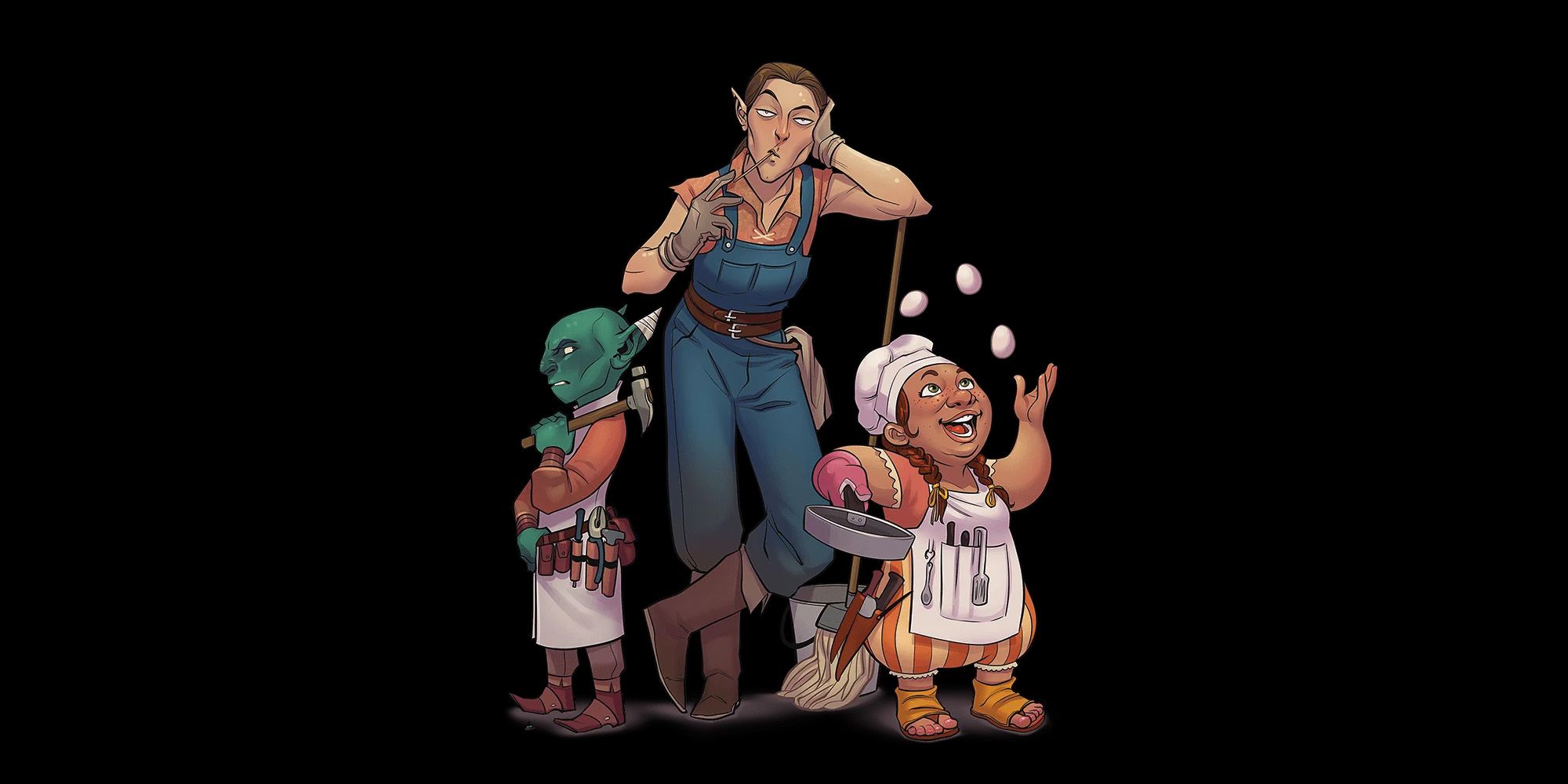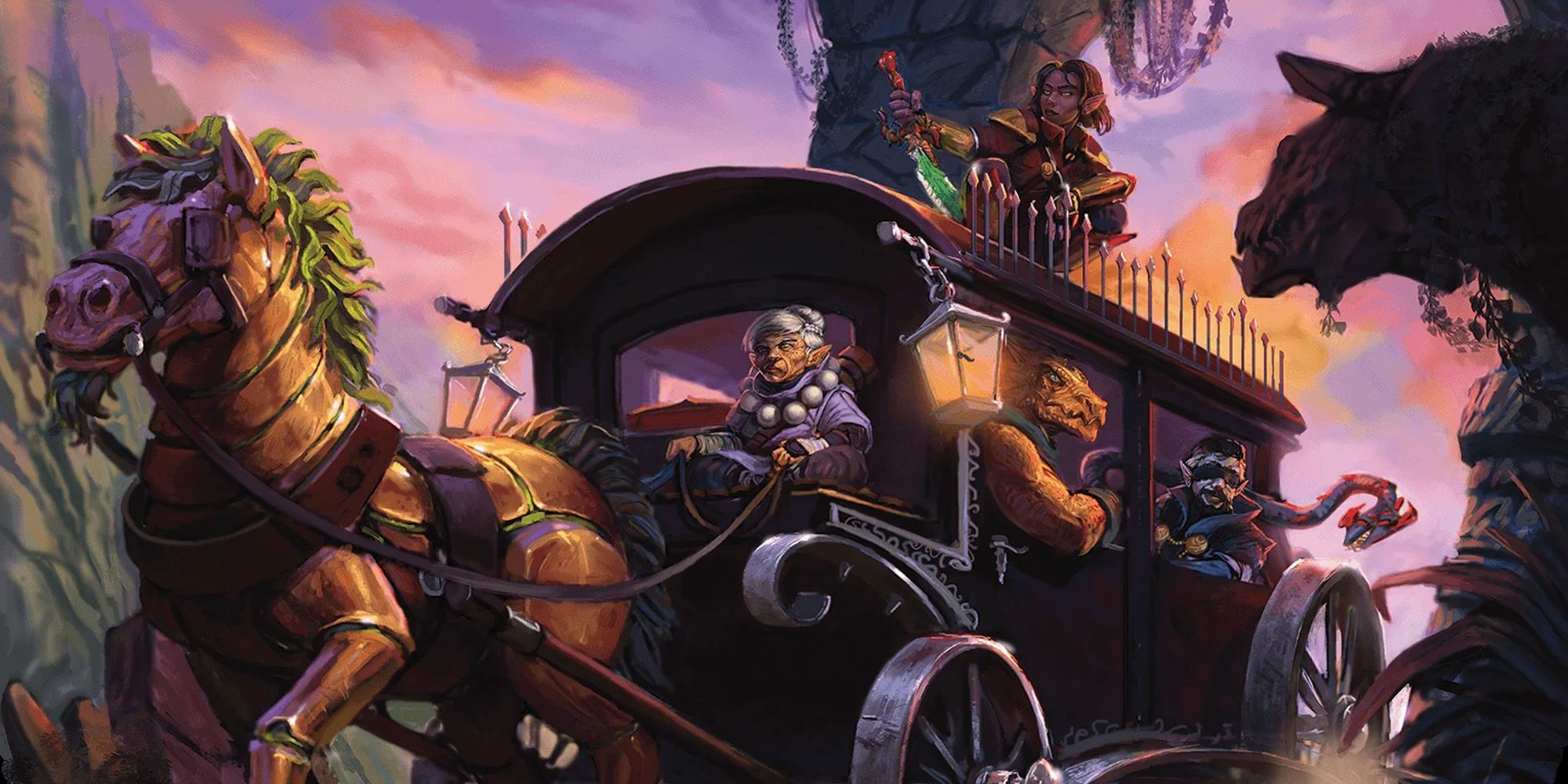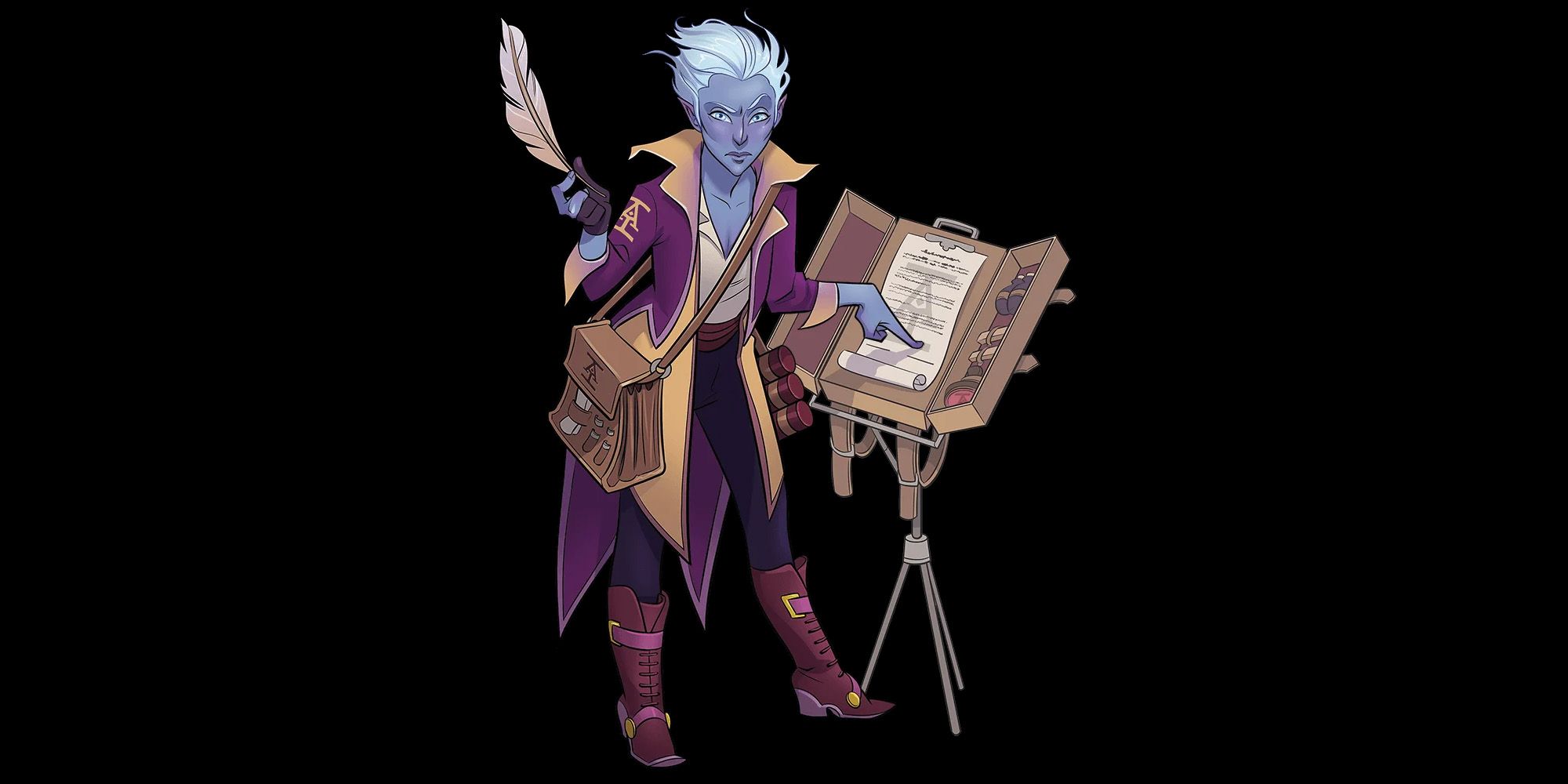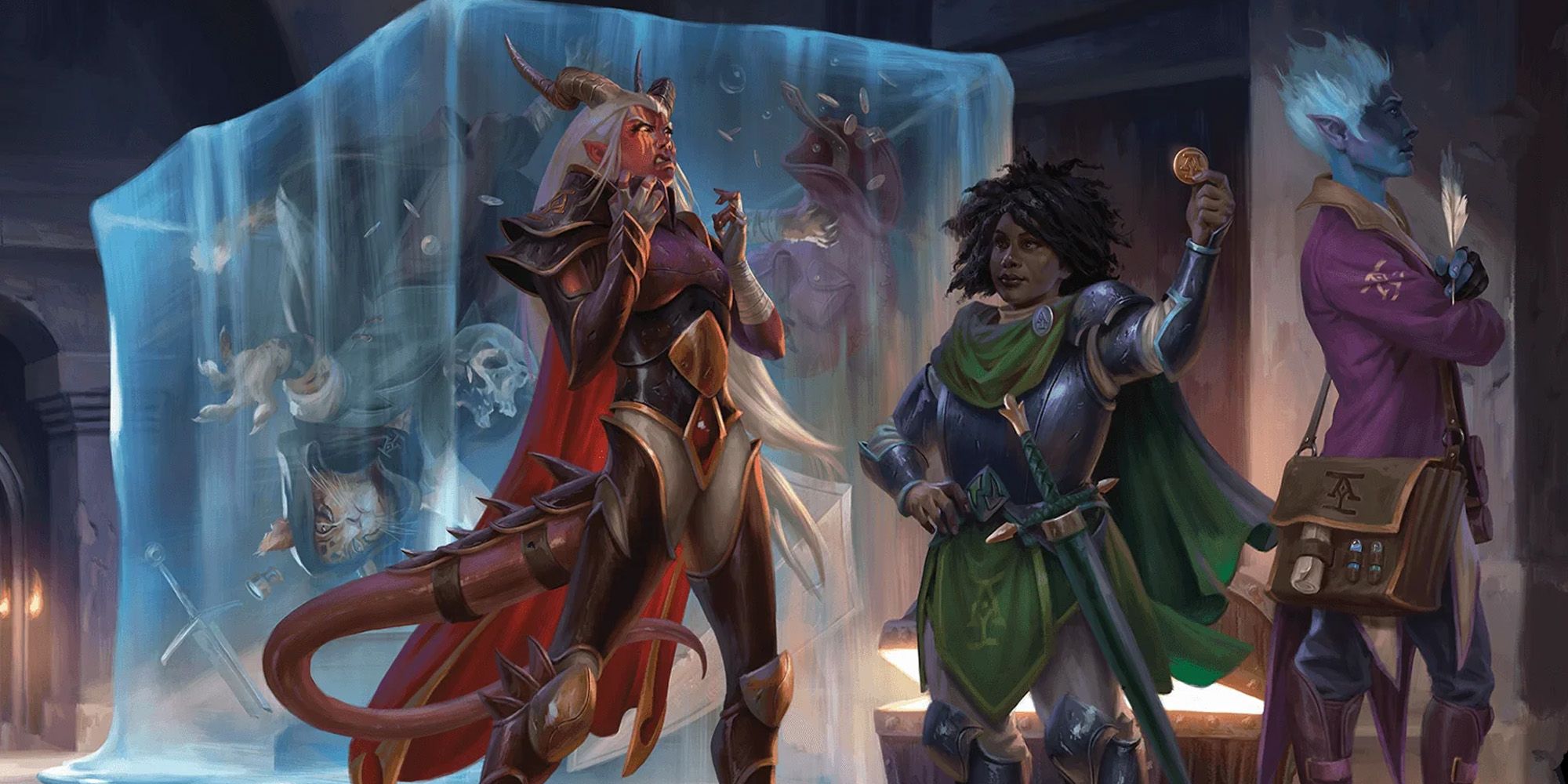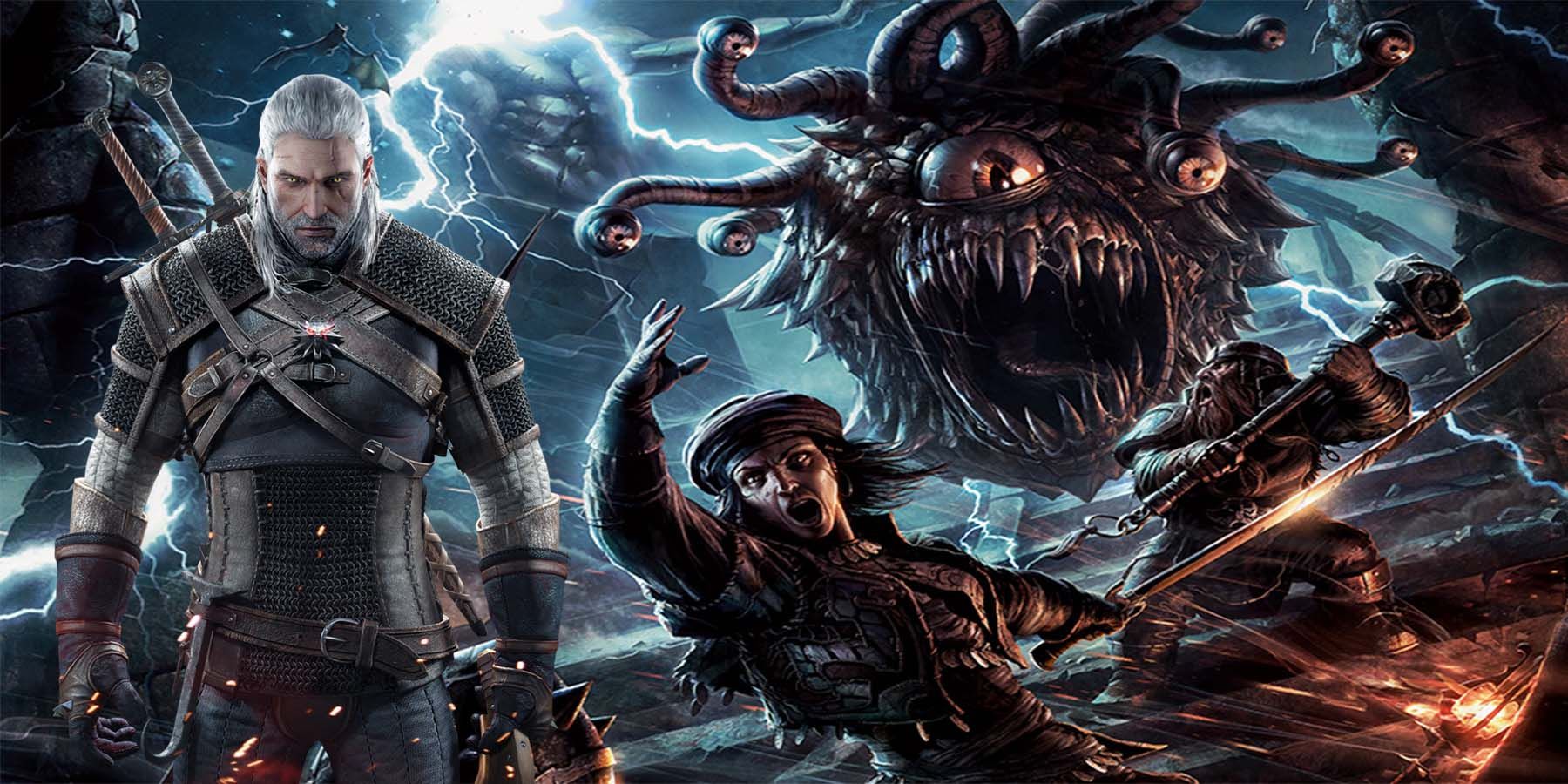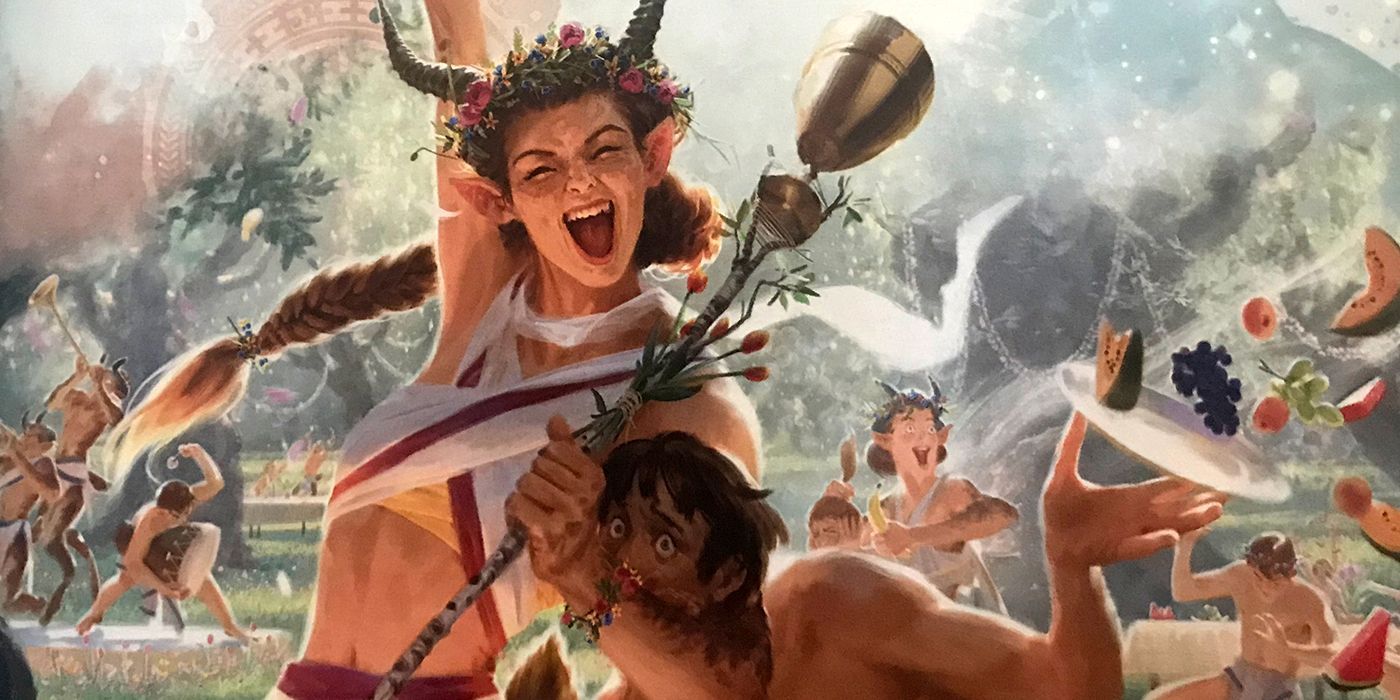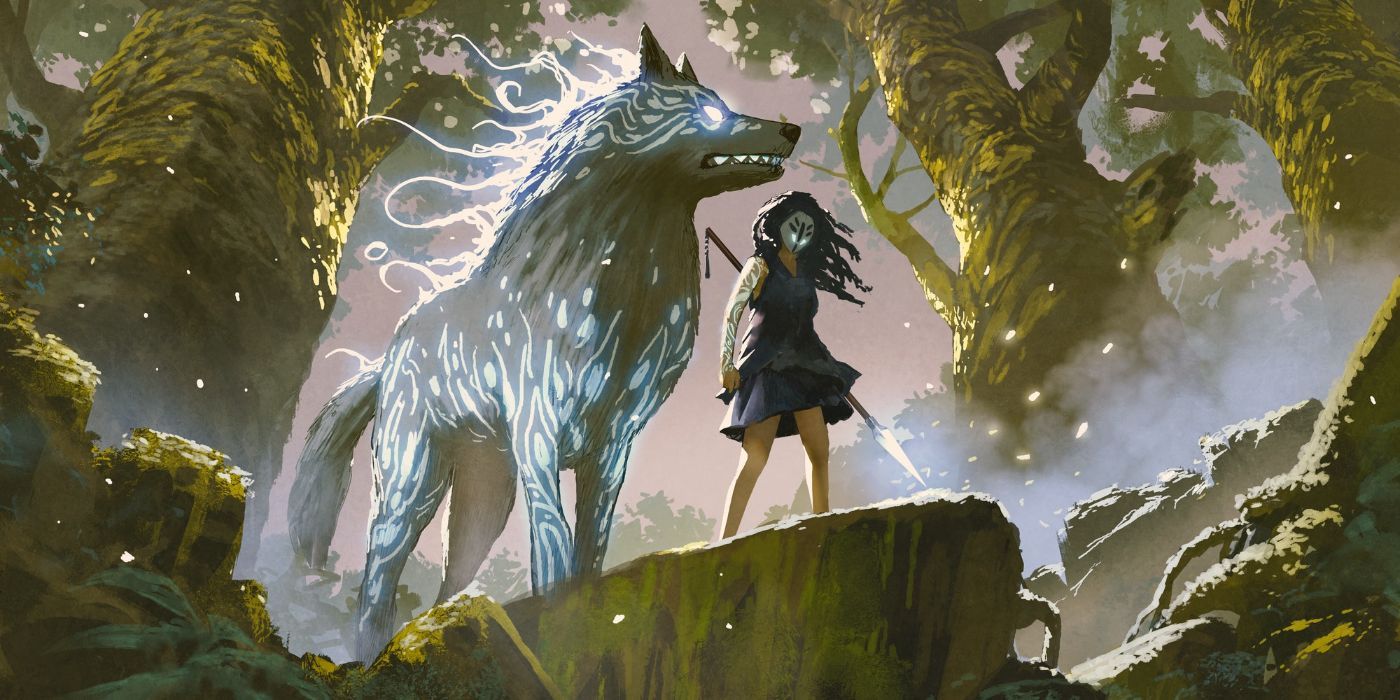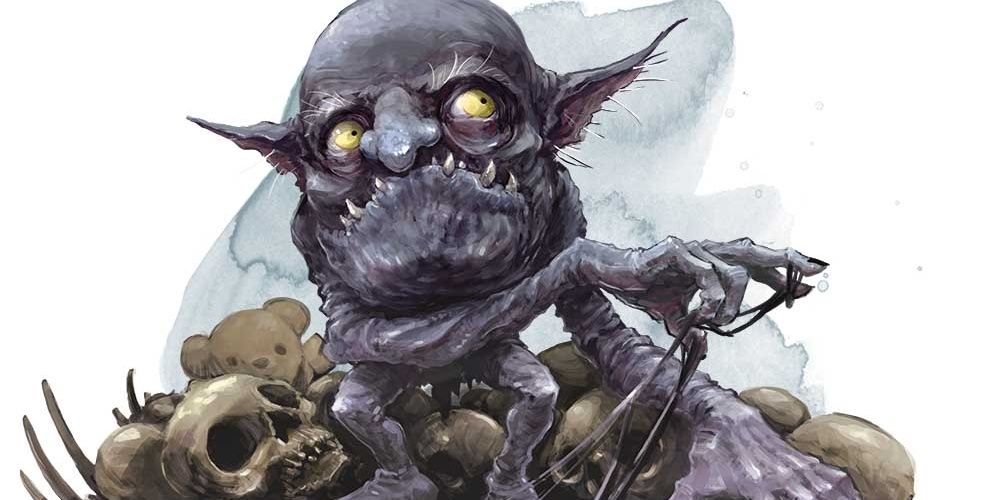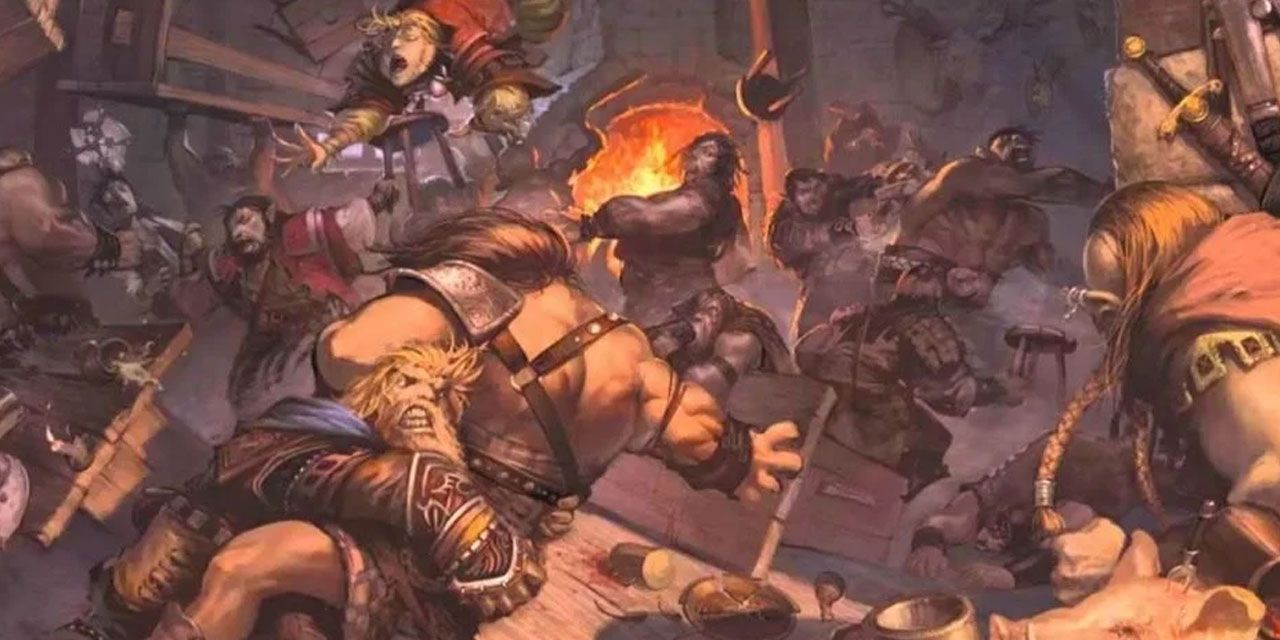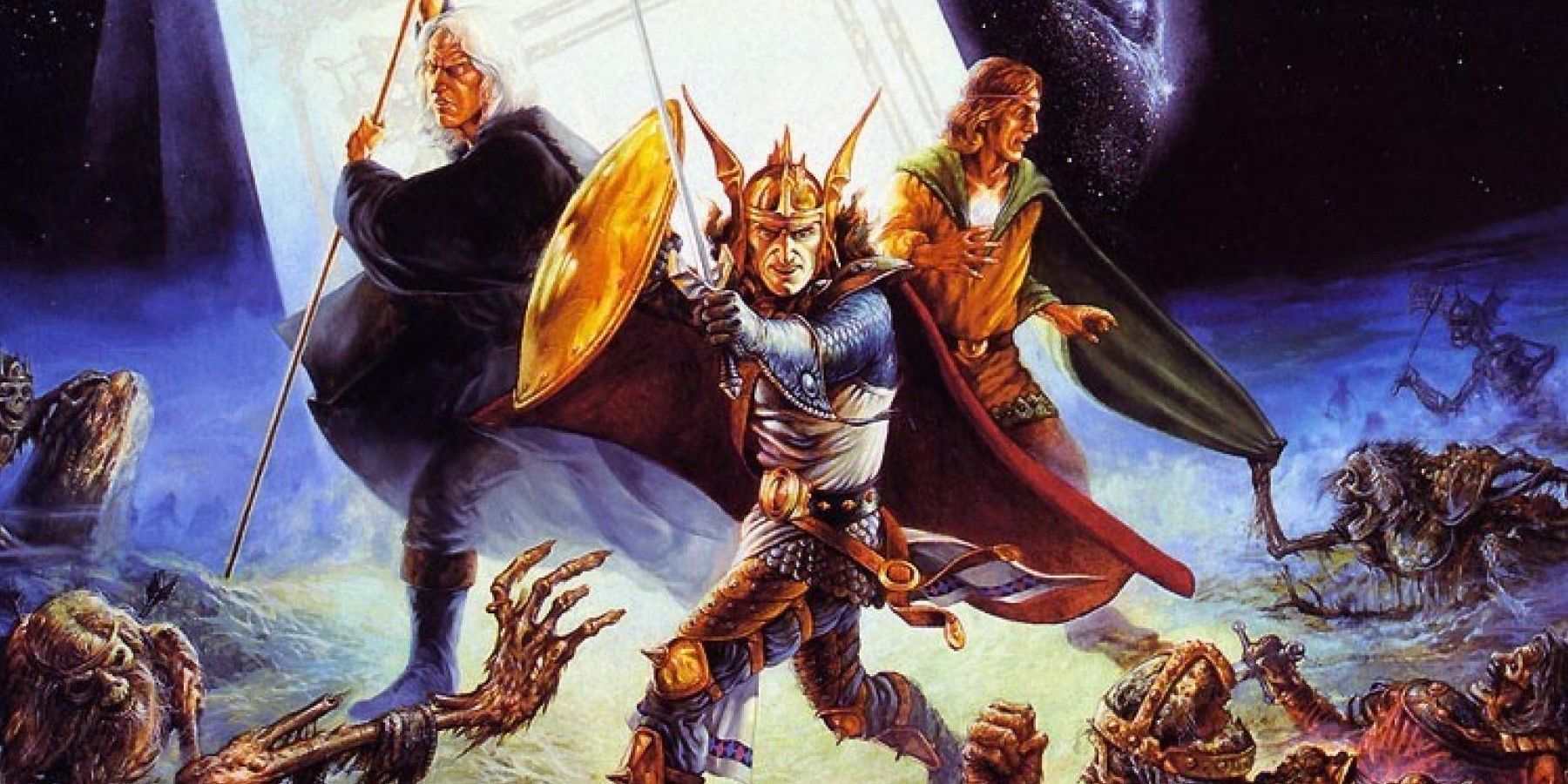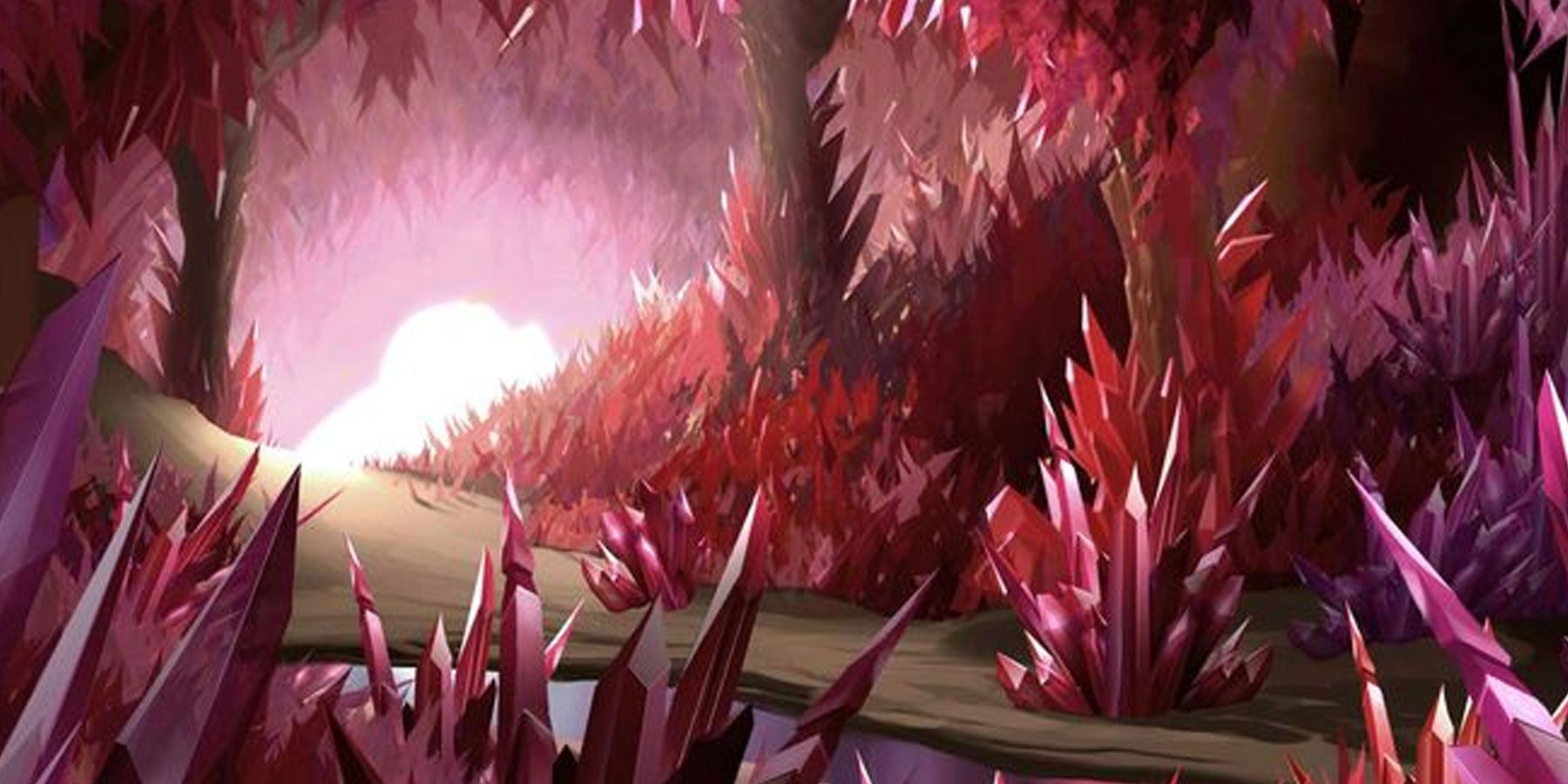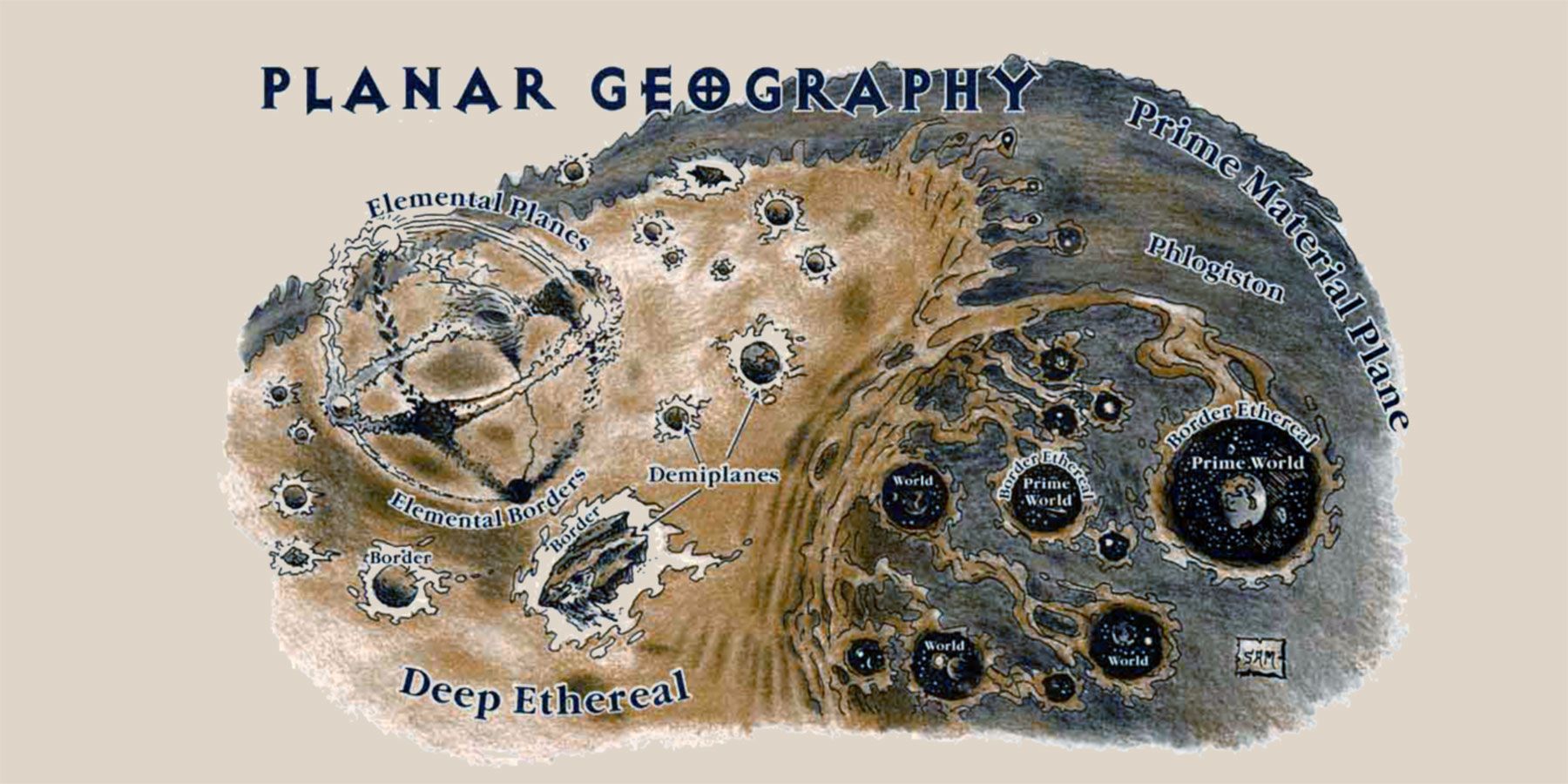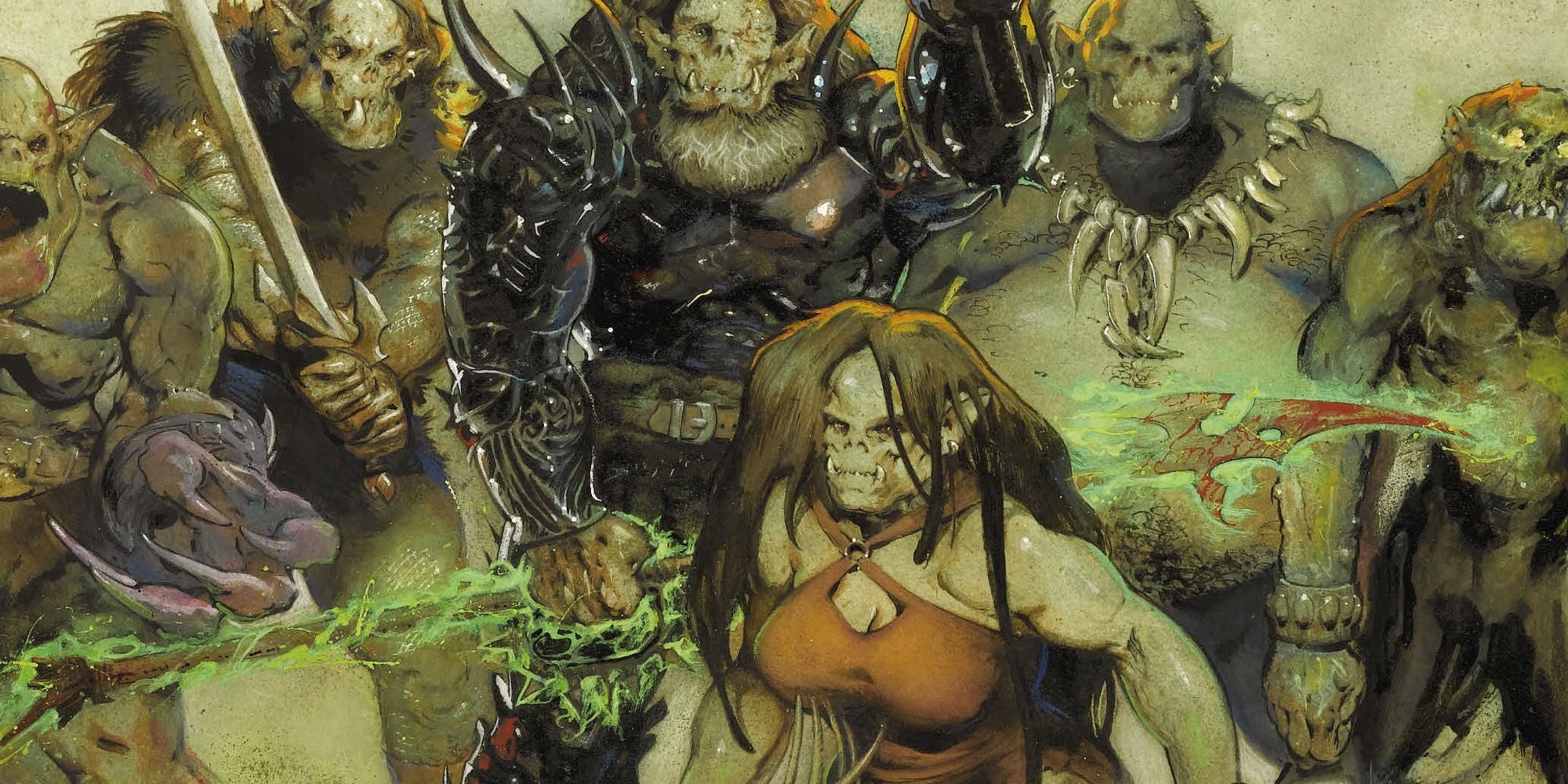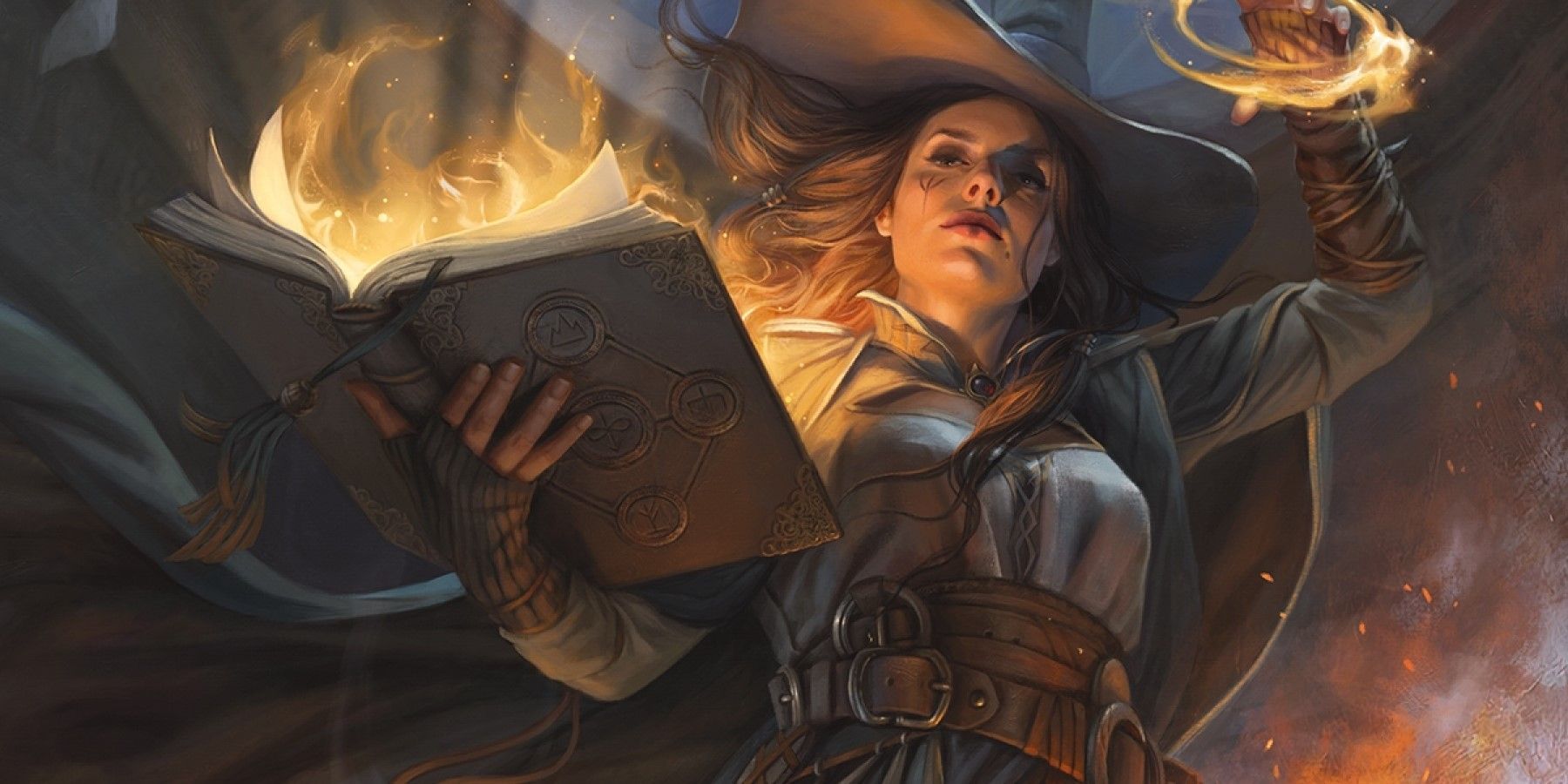Highlights
- Consider players' backstories for a more immersive and engaging campaign. Hook onto darker elements or explore the opposite for added depth.
- Communication with players is key to setting expectations, discussing themes, preferences, and possible triggers, for a smoother gameplay experience.
- Play to the DM's strengths and focus on enjoyable aspects like combat or creativity. Lean into personal style and preferences to create a unique game experience.
Inside a dilapidated tavern, a Wizard pours over scrolls, a Rogue and Paladin bicker, and a Cleric mumbles prayers to a shadowy god. A new Dungeons and Dragons adventure is about to begin, the first spark that will in time grow into the inferno of an entire campaign.
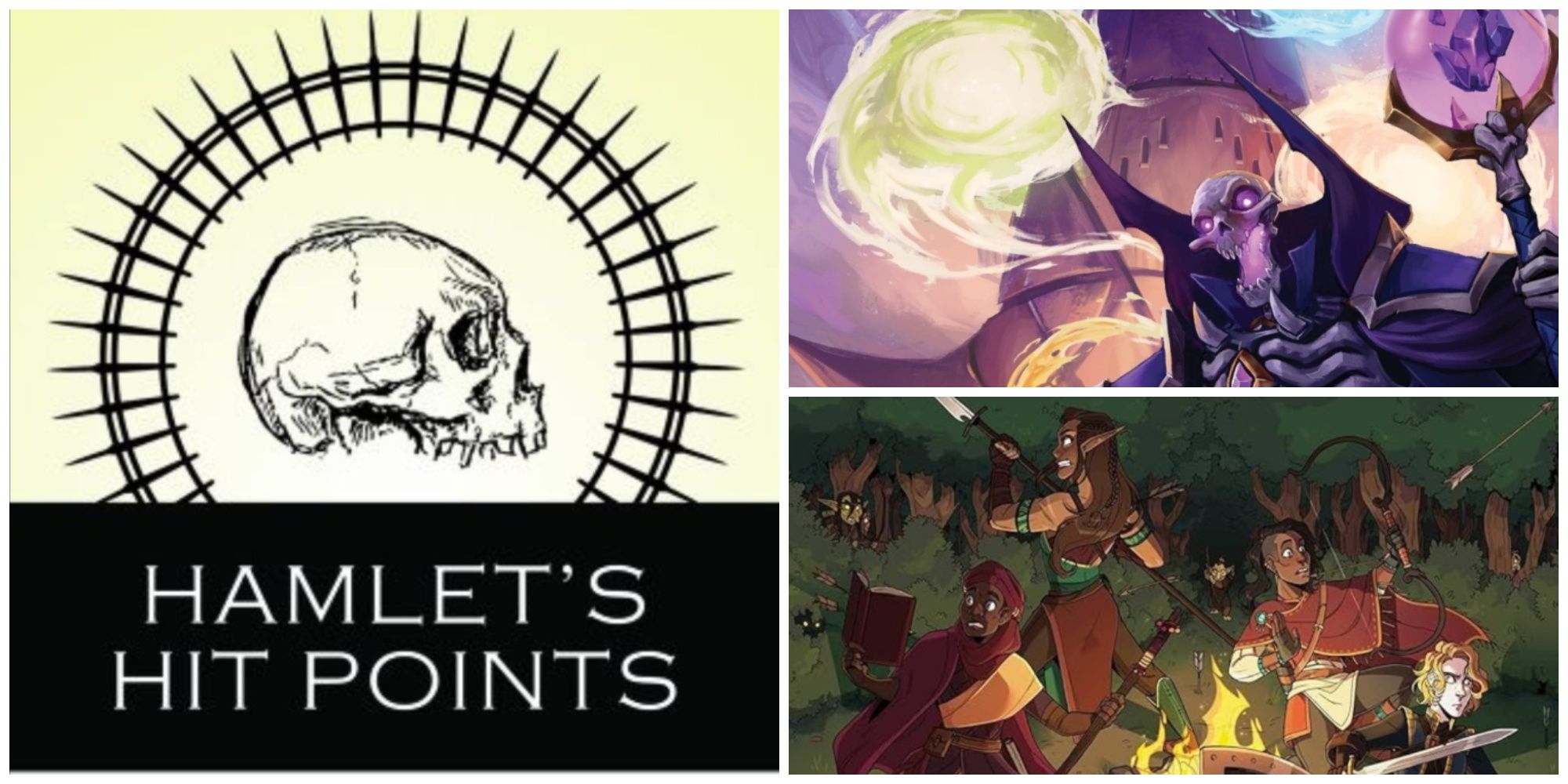
Great Non-Official D&D Books That Dungeon Masters Should Read
Though these books are not official Dungeons & Dragons literature, Dungeon Masters should definitely give them a shot.Players only have their character to worry about, and while a backstory may need to be crafted and a wardrobe dreamed up, the inventive work is quickly done. For the Dungeon Master, however, there's an entire world to worry about, and maybe more than one. Writing stories can feel impossible when the possibilities are endless, but most successful campaign writing hinges on a few simple points.
Updated January 17, 2024 by Ivan Abadier: Being a Dungeon Master is never easy, but it is incredibly rewarding when everything falls into place. Staring at a blank page can be quite daunting, and even a little disorienting to begin with. But there is truly nothing to worry about, and with a little effort and creativity, anyone can design a fantastic adventure.
New DMs are also welcome to read amazing supplemental books and unofficial guides online. On top of that, it can be quite useful to take a short writer’s course, or an improv class to boost one’s confidence. No matter what players may decide, these simple tips should help when learning how to write a DnD campaign.
1 Consider Players' Backstories
There Might Be A Treasure Trove Of Storytelling
Players might not intend to have their character’s vicious uncle who killed their parents appear in the game, but that is no reason not to include one! Players often gravitate towards darker backstories, and there is almost always a hook to grab onto.
And if not, consider the opposite. A loving parent might worry themselves sick, or even occasionally send a helpful package along the way. Old friends could be met, enemies encountered, even treasures dug up. And it makes players so much more invested in the story.
2 Discuss Expectations With Players
Communication Is Always Incredibly Important, And A Session Zero Is No Exception
Getting everyone in the game on the same page is very important, and can prevent a lot of conflict or confusion going forward. People might have different expectations from D&D, and talking about the exact style, themes, possible triggers, and setting can be very beneficial.
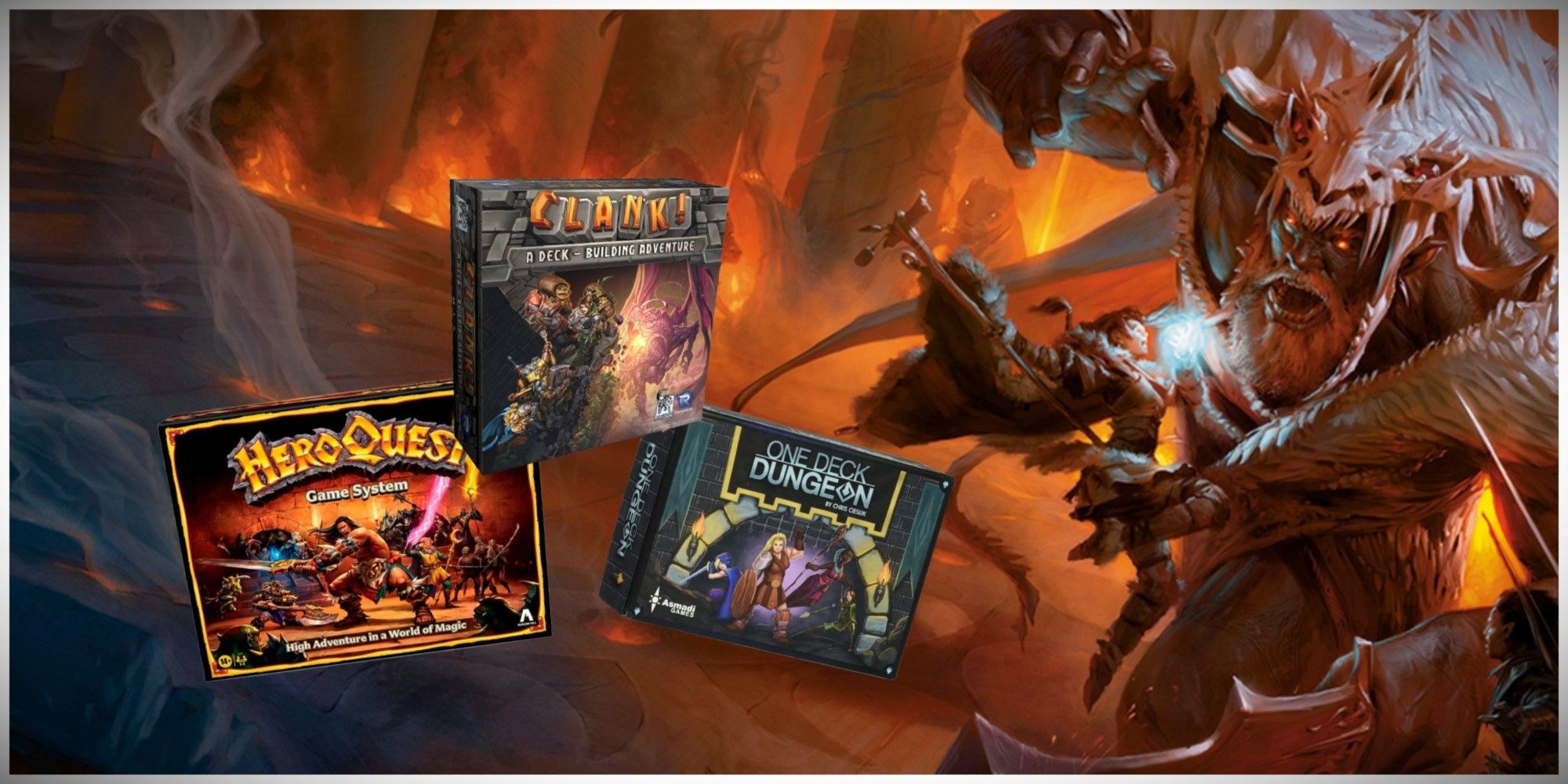
12 Best Tabletop Dungeon Crawlers
Fans of dungeon crawlers looking for new experiences should give these tabletop games a shot.Also, asking players for what they want in a game can massively help tailor the experience. Perhaps someone enjoys puzzles or yearns for harder combat. Taking opinions into account and focusing on specific aspects can both make the DMing job a little easier and more rewarding for everyone.
3 Playing To The DM's Strengths
Or Focus On The Most Enjoyable Aspect
Perhaps the DM is a big fan of tactical RPGs and enjoys the combat aspect and possibilities of the game. Or they are having a lot of fun doing various impressions of famous people, and it’s something they like doing.
Whatever it is, a DM will always have their style of running a game, so one might as well lean into their strengths when doing it. There are many interesting aspects to homebrew campaigns, from music to artwork, to maps, and so forth. No one else can do their game like they can.
4 Adapt If Need Be
Plans Can Be More Flexible Than One Thinks
There are truly countless stories of players completely derailing games, and even entire campaigns. Unless done out of malice or lack of care, there is nothing wrong with that in a homebrew game. The beauty of a custom campaign is the freedom for everyone involved, and the story can easily go in a new direction.
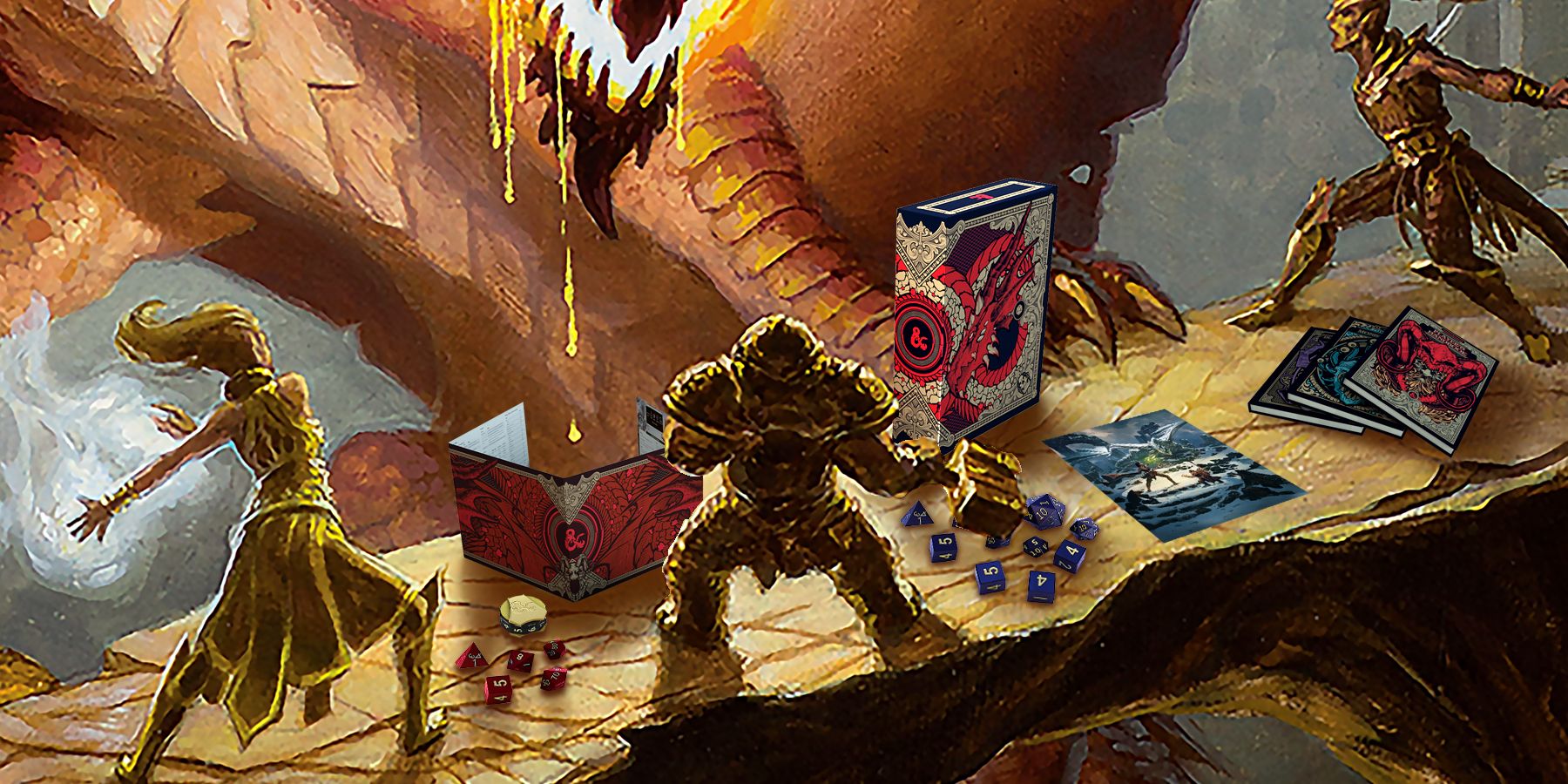
Dungeons & Dragons: 13 Tips For First-Time Players
D&D can look intimidating to newcomers. Worry not — with these tips and tricks, you'll be slaying dragons in no time.Plans can be amazing, and having planned story beats can be incredibly exciting. But if the players find a different route, or decide not to engage with a certain NPC, despite how it might seem, nothing is truly lost. An NPC can pop up elsewhere, a villain can bide their time, and a hidden treasure can wait in a different dungeon.
5 Choose A Style
From High Fantasy To Grim Dark
The varied fantasy worlds of Dungeons and Dragons support many playstyles, and choosing a playstyle before the game even begins makes the writing process immeasurably easier for the DM. Will the game be one of swashbuckling action on the high seas? What about a kick-in-the-door dungeon crawler for screaming, duel-wielding barbarians? Or maybe intrigue in the royal court is more of the party's cup of tea?
If the DM discusses playstyles with their players and chooses one well in advance, the writing process will flow more easily, as the DM will not only know the overall tone to shoot for but will also be able to turn to classic examples of the genre for inspiration.
6 Decide What's Different
Adding A Personal Twist Sets A Work Apart
The Dungeons and Dragons ruleset supports numerous kinds of worlds: Tolkienesque fantasy kingdoms plagued by invading orcs, steampunk cities where androids march the streets, and even cyberpunk cities where neon-drenched skyscrapers disappear in choking smog.
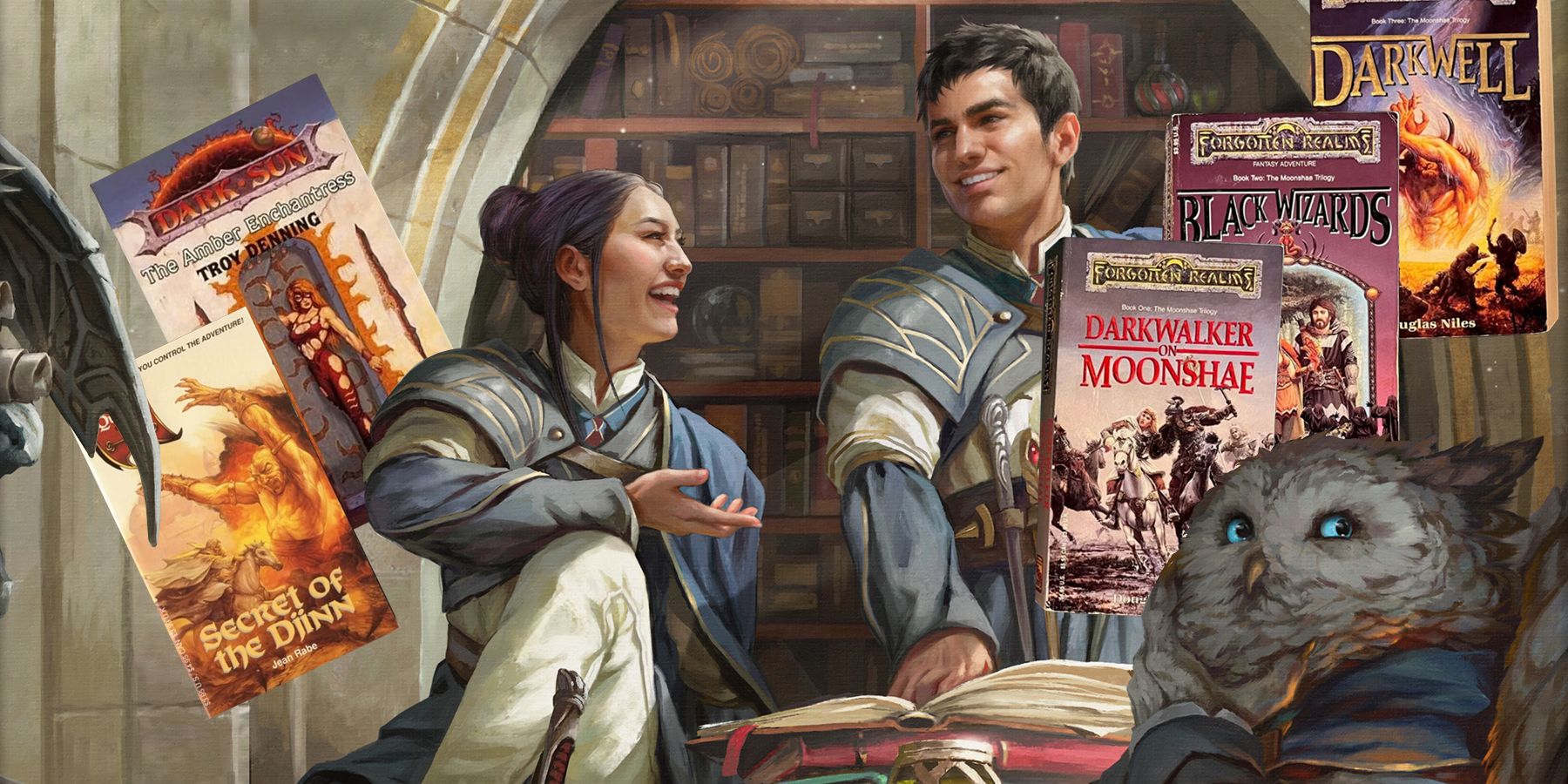
23 Best Dungeons & Dragons Novels, Ranked
Dungeons & Dragons players looking to explore the franchise's lore outside the games can check out these novels.Whatever the world looks like, it's almost always distinct from the real world. Electrified monsters might dwell in the sewers. Ships might be fueled by dragon's tears instead of coal. Starting with the real world or a classic fantasy world as a reference point, even just a handful of changes can be enough to define a game world and set the stage for an epic campaign to come. Transform the familiar, and everything is new.
7 Decide What's The Same
Classics & Staples Have Become So For A Reason
As important as it is to recognize what separates the campaign world from the real one, it can be just as important to recognize what both worlds share. Making a fantasy world similar to the real one might seem like boring or lazy design, but incorporating ordinary facts or technologies into an extraordinary setting can make for fascinating campaigns.
How would the campaign be different if the high elves possessed black powder? What if the gnomes had perfected submarine technology centuries ago? What if the continents were exactly the same as those of Earth, but with national borders redrawn by warring trolls, dwarves, and ents?
8 Consider Magic
Wonders Can Await At Every Corner
Often the most significant factor differentiating one fantasy world from another is magic. Magic in high fantasy campaigns might be able to flood a kingdom with a word, whereas in low fantasy campaigns lighting a single candle with a spell might be an awe-inspiring feat.
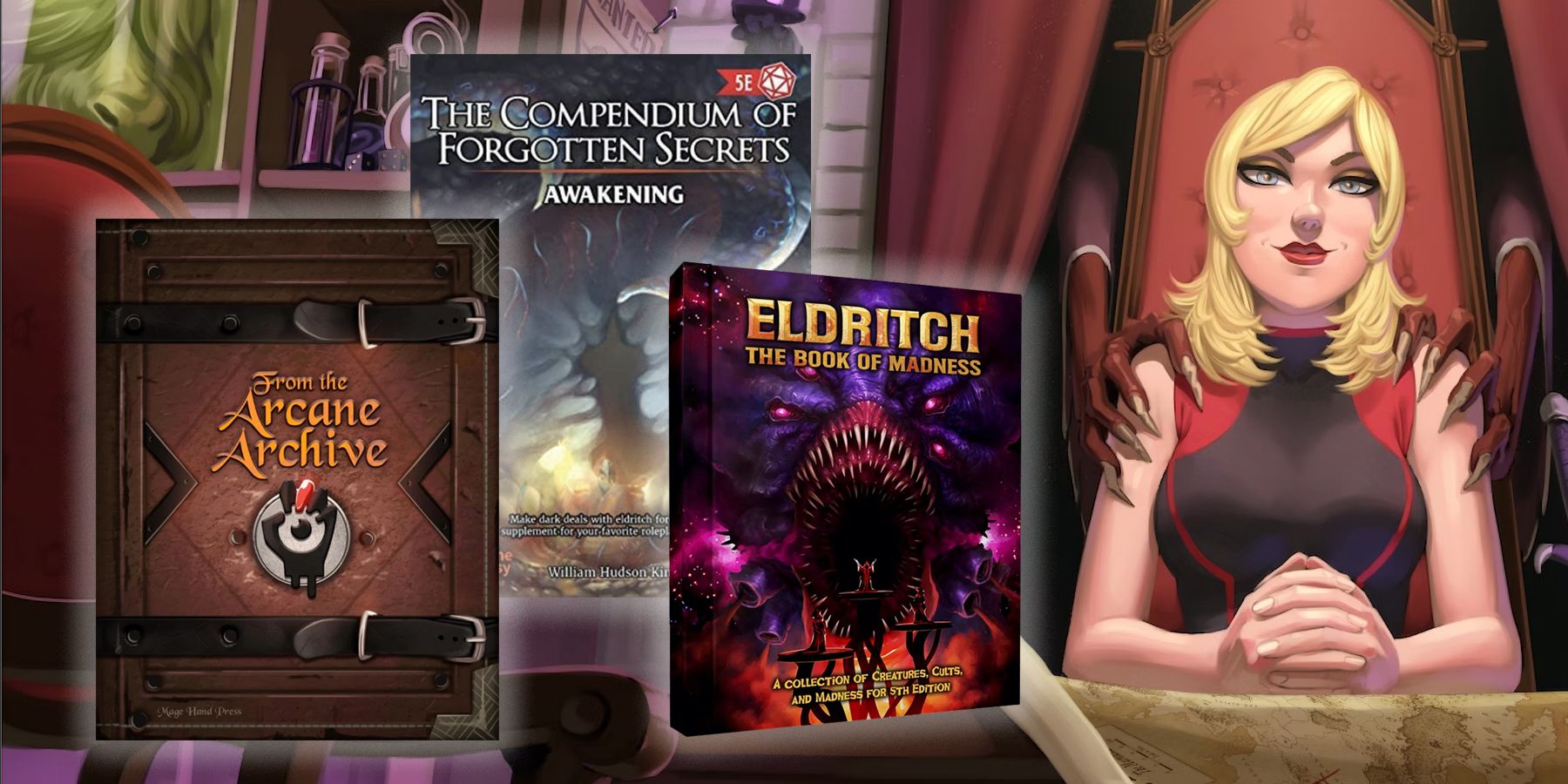
Best Third Party Books for D&D 5e, Ranked
The world of Dungeons and Dragons offers plenty of content, but these fan-made additions allow players to expand their worlds even more.Magic might originate from the gods, the land, the universe, morality, or the characters' own blood. It might affect only the dead or only those who have bled in the caster's presence. The rules of magic can be anything, but once set, those rules should not be broken without good cause, as doing so weakens the fiction. Because the workings of magic tend to influence everything else in the world, magic should be one of the Dungeon Master's first considerations.
9 Conflict And Stakes
What Drives The Characters?
Campaigns must have a point, whether it's saving the prince, destroying the God of Plump Leeches, or exposing a beloved landlord for the evil cultist he is. The characters must have an objective as well as a compelling reason to complete that objective.
The DM should consider what the primary goal of the campaign will be, what obstacles stand in the way, and why the characters care enough to bother getting over those obstacles. The conflict and stakes are influenced by the campaign's style, but even within a given style, there's plenty of room for innovation and creativity.
10 Here There Be Dragons
There Are Plenty Of Hungry Monsters To Choose From
It's not always dragons in the bowels of dungeons, dreaming fitfully atop their mounds of jewels and gold. Many a creature can plague adventurers. Some campaigns have a monster-of-the-week flavor, with every session bringing some new antagonists.
Others have a single foe, such as a pack of rogue werewolves or an army of demons. Most fall somewhere in between, but there's no right answer.
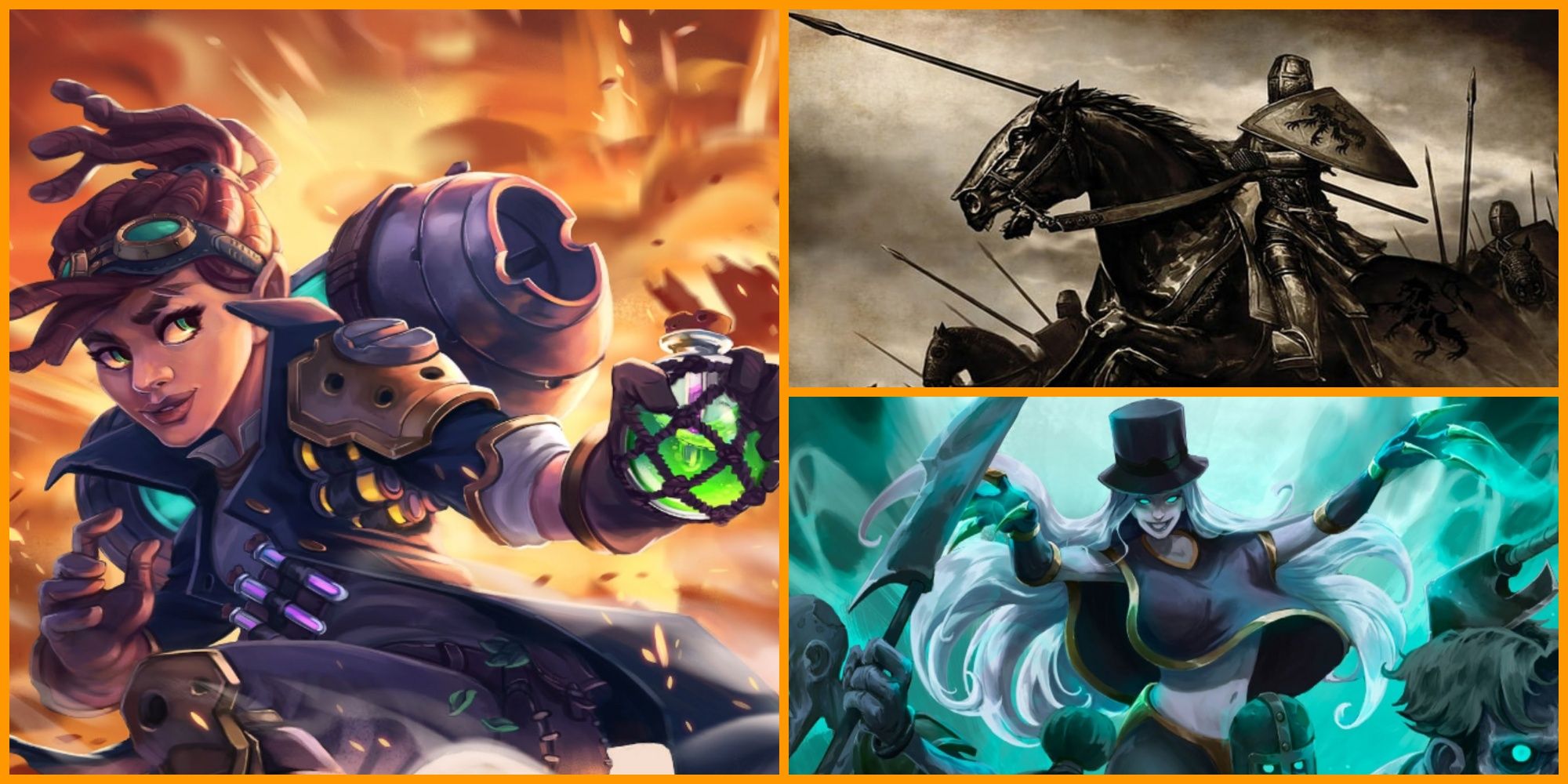
Dungeons & Dragons: Unofficial Classes You Should Try
These unofficial D&D classes are the perfect way to spice up the classic tabletop RPG.Adding more monster variety keeps players on their toes but doesn't let them develop much of a connection to any. Limiting monster variety means players will know their enemy, but the depth of that knowledge might be poisonous indeed.
11 Consider Power Dynamics
Who Rules The Town, And Why?
The players' characters might be howling barbarians and flame-slinging sorcerers, always trotting off on one adventure or another, returning home with sacks of platinum and artifacts. That doesn't mean they're the only interesting or powerful characters in the world.
Royalty, the heads of major guilds and corporations, leading religious figures, explorers, famed warriors and inventors, and other major NPCs give the world color and depth and also act as catalysts for new adventures. It's probably a waste of time to detail the names, lineages, and favorite custards of every single NPC in advance, but it's to the DM's advantage to at least identify a few of the major players in the world. Knowing their identities also tells the DM whether they're likely to appear as friends or foes.
12 Top-Down And Bottom-Up Storytelling
Whichever Way Works, One Should Be Mindful Of It
Campaigns, like worlds, can be built from the top-down or bottom-up. Top-down building starts with the largest story beats: the most important NPCs, locations, items, and enemies in the story, slowly only digging into more detail as necessary.
Bottom-up building starts with the smallest story beats: a single conversation, the passage of a stranger on the road, or a dry well in a dusty town.
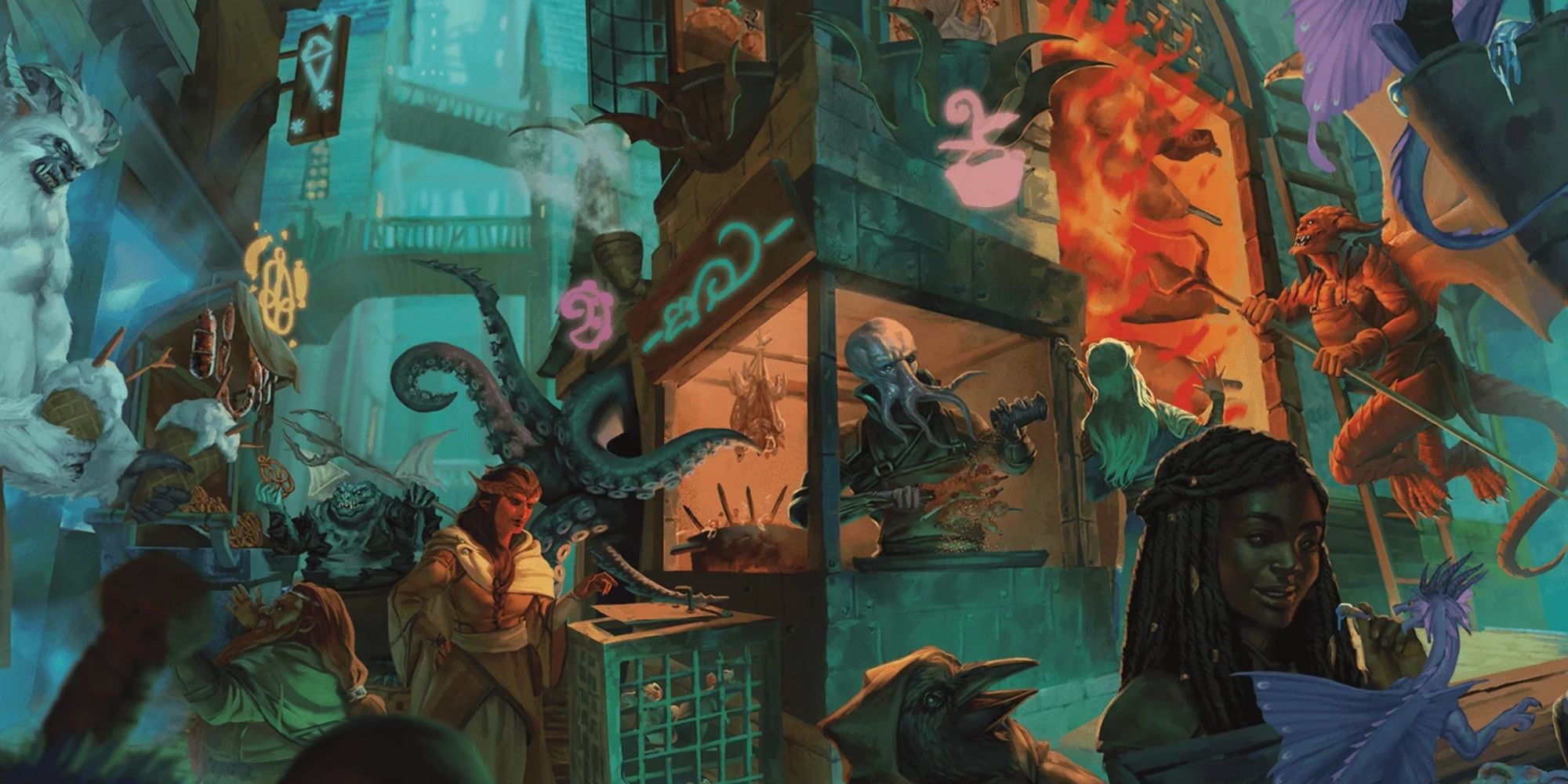
Epic D&D Campaign Ideas for Dungeon Masters
Dungeons & Dragons has unlimited creativity, and here are some great ideas for some truly epic campaigns led by Dungeon Masters.Whether the DM builds their story top-down, bottom-up, or something in between is purely a matter of preference. What matters is that the story gains depth, but not so much that players drown in details.
13 Leave Room For Player Contributions
At The End Of The Day, It Is Collaborative Storytelling
The DM is the game's director, and with that much creative power in one person's hands, it's all too easy to forget the contributions of the actors. Gathering player input early on is crucial for the success of a campaign.
The more the DM knows about what kind of characters the players will be using, their backstories, and what kind of adventures they want to be involved in, the easier it will be for the DM to write. In fact, the best parties do much of the DM's work for them by bringing plot hooks and NPC suggestions to the table instead of forcing the DM to do all the work of inventing them. Listening to the party benefits everyone.
14 Don't Overprepare
Players Will Find A Way To Shock Regardless
Perhaps the largest mistake a DM can make is over-preparation: arranging every last NPC, enemy, item, location, and plot beat far in advance like a chess master trying to see twenty moves ahead. The problem is the DM is not the only person moving pieces, and players can and will destroy the best-laid plans.
Players can't be forced to comply with the DM's schemes without railroading them and taking away the fun and freedom of roleplaying, so it's best to paint in broad strokes and let the players fill in the rest. Doing so demands some ability to improvise, and though that can be scary, the rewards make it well worth it.
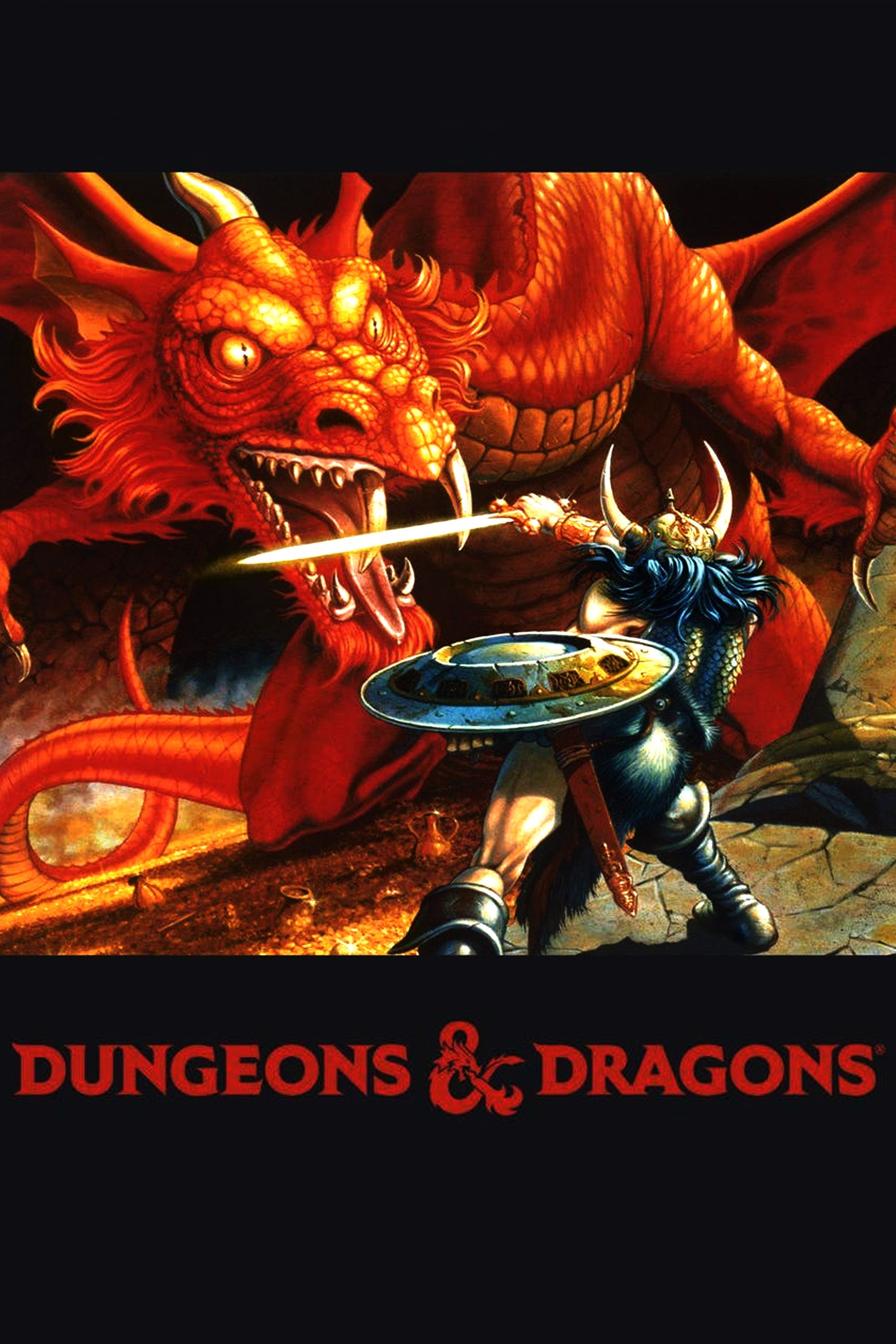
Dungeons and Dragons
- Original Release Date
- 1974-00-00
- Designer
- E. Gary Gygax , Dave Arneson
- Publisher
- Wizards of the Coast


